Same-sex marriage has been legal in Belgium since 1 June 2003. A bill for the legalization of same-sex marriages was passed by the Senate on 28 November 2002, and by the Chamber of Representatives on 30 January 2003. King Albert II granted his assent, and the bill entered into force on 1 June. Polling indicates that a significant majority of Belgians support the legal recognition of same-sex marriage. Belgium was the second country in the world to legalise same-sex marriage, after the Netherlands.

Rights affecting lesbian, gay, bisexual, and transgender (LGBTQ) people vary greatly by country or jurisdiction—encompassing everything from the legal recognition of same-sex marriage to the death penalty for homosexuality.
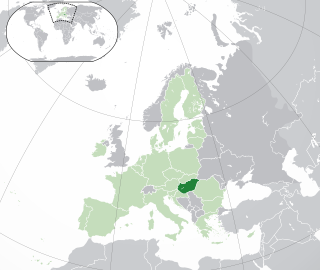
Lesbian, gay, bisexual, and transgender (LGBTQ) people in Hungary face legal and social challenges not experienced by non-LGBT residents. Homosexuality is legal in Hungary for both men and women. Discrimination on the basis of sexual orientation and sex is banned in the country. However, households headed by same-sex couples are not eligible for all of the same legal rights available to heterosexual married couples. Registered partnership for same-sex couples was legalised in 2009, but same-sex marriage remains banned. The Hungarian government has passed legislation that restricts the civil rights of LGBT Hungarians – such as ending legal recognition of transgender Hungarians and banning LGBT content and displays for minors. This trend continues under the Fidesz government of Viktor Orbán. In June 2021, Hungary passed an anti-LGBT law on banning "homosexual and transexual propaganda" effective since 1 July. The law has been condemned by seventeen member states of the European Union. In July 2020, the European Commission started legal action against Hungary and Poland for violations of fundamental rights of LGBTQI people, stating: "Europe will never allow parts of our society to be stigmatized."
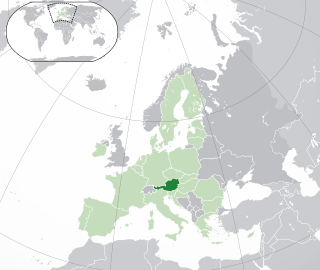
Lesbian, gay, bisexual, and transgender (LGBTQ) rights in Austria have advanced significantly in the 21st century, and are now considered generally progressive. Both male and female forms of same-sex sexual activity are legal in Austria. Registered partnerships were introduced in 2010, giving same-sex couples some of the rights of marriage. Stepchild adoption was legalised in 2013, while full joint adoption was legalised by the Constitutional Court of Austria in 2016. On 5 December 2017, the Austrian Constitutional Court decided to legalise same-sex marriage, and the ruling went into effect on 1 January 2019.
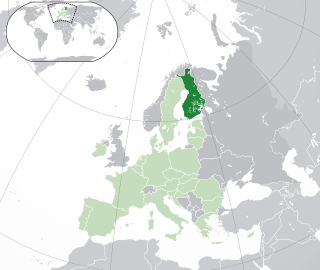
Lesbian, gay, bisexual, and transgender (LGBT) rights in Finland are among the most advanced in the world. Both male and female same-sex sexual activity have been legal in Finland since 1971 with "promotion" thereof decriminalized and the age of consent equalized in 1999. Homosexuality was declassified as an illness in 1981. Discrimination based on sexual orientation in areas such as employment, the provision of goods and services, etc., was criminalized in 1995 and discrimination based on gender identity in 2005.
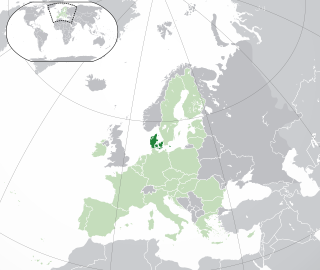
Danish lesbian, gay, bisexual, and transgender (LGBT) rights are some of the most extensive in the world. In 2023, ILGA-Europe ranked Denmark as the third most LGBT-supportive country in Europe. Polls consistently show that same-sex marriage support is nearly universal amongst the Danish population.
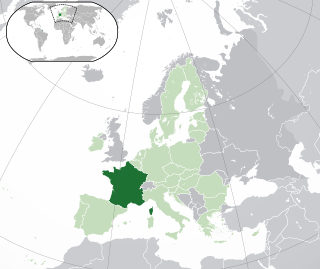
Lesbian, gay, bisexual, and transgender (LGBT) rights in France are some of the most progressive by world standards. Although same-sex sexual activity was a capital crime that often resulted in the death penalty during the Ancien Régime, all sodomy laws were repealed in 1791 during the French Revolution. However, a lesser-known indecent exposure law that often targeted LGBT people was introduced in 1960, before being repealed in 1980.

Lesbian, gay, bisexual, and transgender (LGBTQ) rights in the Netherlands are among the most advanced in the world. Same-sex sexual activity was legalized in 1811 after France invaded the country and installed the Napoleonic Code, erasing any remaining sodomy laws. No more sodomy laws were enacted after the country received independence. An age of consent equal with that of heterosexual activity was put in place in 1971. During the late 20th century, awareness surrounding homosexuality grew and society became more tolerant of gay and bisexual people. The changes eventually led to homosexuality's declassification as a mental illness in 1973 and a ban on discrimination based on sexual orientation in the military. The Equal Treatment Act 1994 bans discrimination on account of sexual orientation in employment, housing, public accommodations, and other areas. This was extended in 2019 to include discrimination based on gender identity, gender expression and sex characteristics. After the country began granting same-sex couples registered partnerships benefits in 1998, the Netherlands became the first country in the world to legalize same-sex marriage in 2001. Same-sex joint and stepchild adoption are also permitted, and lesbian couples can access IVF as well.
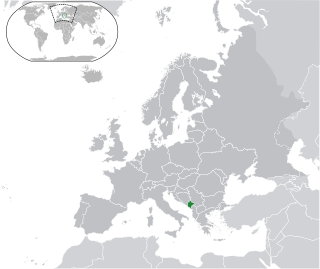
Lesbian, gay, bisexual, and transgender (LGBT) people in Montenegro face legal challenges not experienced by non-LGBT residents. Both male and female same-sex sexual activity are legal in Montenegro, but households headed by same-sex couples are not eligible for the same legal protections available to opposite-sex married couples.

Lesbian, gay, bisexual, and transgender (LGBT) rights in Andorra have advanced significantly in the 21st century, and are now considered generally progressive. Civil unions, which grant all the benefits of marriage, have been recognized since 2014, and discrimination on the basis of sexual orientation is constitutionally banned. The General Council passed a bill on 21 July 2022 that would legalize same-sex marriage in 2023, and convert all civil unions into civil marriage. In September 2023, Xavier Espot Zamora, the Prime Minister of Andorra, officially came out as homosexual.

Lesbian, gay, bisexual, and transgender (LGBT) people in Luxembourg have the same legal rights as non-LGBT people. Partnerships, which grant many of the benefits of marriage, have been recognised since 2004. In June 2014, the Luxembourgish Parliament passed a law enabling same-sex marriage and adoption rights, which took effect on 1 January 2015. Additionally, discrimination on the basis of sexual orientation and "change of sex" in employment, healthcare and the provision of goods and services is outlawed, and transgender people are allowed to change their legal gender on the basis of self-determination.

Lesbian, gay, bisexual, and transgender (LGBT) people in Monaco may face legal challenges not experienced by non-LGBTQ residents. Both male and female types of same-sex sexual activity are legal in Monaco. However, same-sex couples and households headed by same-sex couples are not eligible for the same legal protections available to opposite-sex married couples. Monaco is the least developed among Western European countries in terms of LGBT equality.

Lesbian, gay, bisexual, and transgender (LGBT) rights in Portugal are among the most advanced in the world; having improved substantially in the 21st century. After a long period of oppression during the Estado Novo, Portuguese society has become increasingly accepting of homosexuality, which was decriminalized in 1982, eight years after the Carnation Revolution. Portugal has wide-ranging anti-discrimination laws and is one of the few countries in the world to contain a ban on discrimination based on sexual orientation in its Constitution. On 5 June 2010, the state became the eighth in the world to recognize same-sex marriage. On 1 March 2011, a gender identity law, said to be one of the most advanced in the world, was passed to simplify the process of sex and name change for transgender people. Same-sex couples have been permitted to adopt since 1 March 2016.

Lesbian, gay, bisexual, and transgender (LGBT) rights in Switzerland are some of the most progressive by world standards. Social attitudes and the legal situation have liberalised at an increasing pace since the 1940s, in parallel to the situation in Europe and the Western world more generally. Legislation providing for same-sex marriage, same-sex adoption, and IVF access was accepted by 64% of voters in a referendum on 26 September 2021, and entered into force on 1 July 2022.
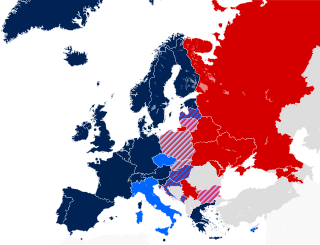
Lesbian, gay, bisexual, and transgender (LGBTQ) rights are widely diverse in Europe per country. 22 of the 38 countries that have legalised same-sex marriage worldwide are situated in Europe. A further 11 European countries have legalised civil unions or other forms of recognition for same-sex couples.

Lesbian, gay, bisexual, and transgender (LGBT) people in Honduras face legal challenges not experienced by non-LGBTQ residents. Both male and female types of same-sex sexual activity are legal in Honduras.
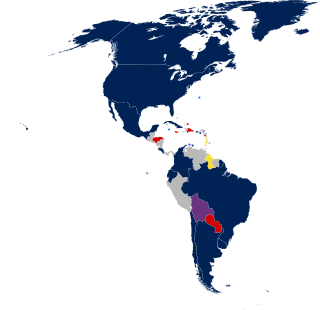
Laws governing lesbian, gay, bisexual, and transgender (LGBT) rights are complex and diverse in the Americas, and acceptance of LGBTQ persons varies widely.

LGBT rights in the European Union are protected under the European Union's (EU) treaties and law. Same-sex sexual activity is legal in all EU member states and discrimination in employment has been banned since 2000. However, EU states have different laws when it comes to any greater protection, same-sex civil union, same-sex marriage, and adoption by same-sex couples.

Lesbian, gay bisexual and transgender (LGBT) history in Belgium has evolved through the centuries. According to LGBT scholars Bart Eeckhout and David Paternotte, Belgium, considered a conservative nation, developed into one of the world's most progressive and LGBT-friendly states. From the 16th century, Roman Catholic values influenced attitudes towards LGBT rights. Homosexuality and sodomy was criminalised and punished in Belgium, with gay men being put under conversion therapy by medical doctors and psychiatrists. Homosexuality was decriminalised in the 18th century, but sodomy still remained punishable until the 19th century. However, from the 21st century, Belgium developed into a more LGBT friendly state; Belgium's anti-discrimination law ensures that discrimination based on sexual orientation is illegal and introduces new transgender legal rights. Belgium is the second country, after the Netherlands, to open civil marriage to same-sex couples in 2003, and granted same-sex couples the right to adopt in 2006. And continues to provide asylum for individuals who may be persecuted for their sexual and gender identity. Belgium has also implemented new education policies to combat school discrimination against LGBT peoples and has allowed IVF and artificial insemination to be available for same-sex couples. Belgium has also supported LGBT politicians and expression of LGBT values through art.
This is a list of notable events in the history of LGBT rights that took place in the year 2016.

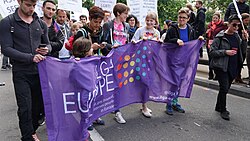
![N-VA at the Antwerp Pride 2018 with the slogan "free and safe in [our] city" Antwerp Pride 2018-08-11 154118.jpg](http://upload.wikimedia.org/wikipedia/commons/thumb/0/06/Antwerp_Pride_2018-08-11_154118.jpg/250px-Antwerp_Pride_2018-08-11_154118.jpg)




















